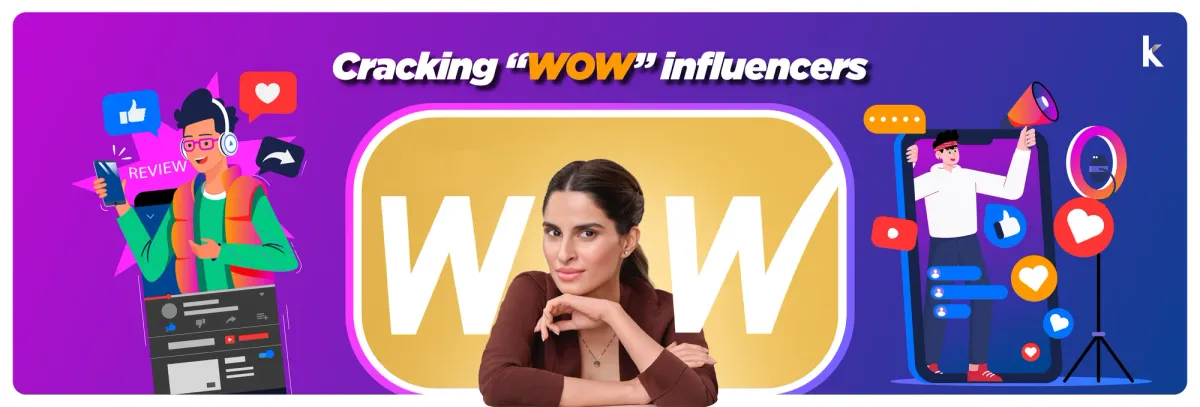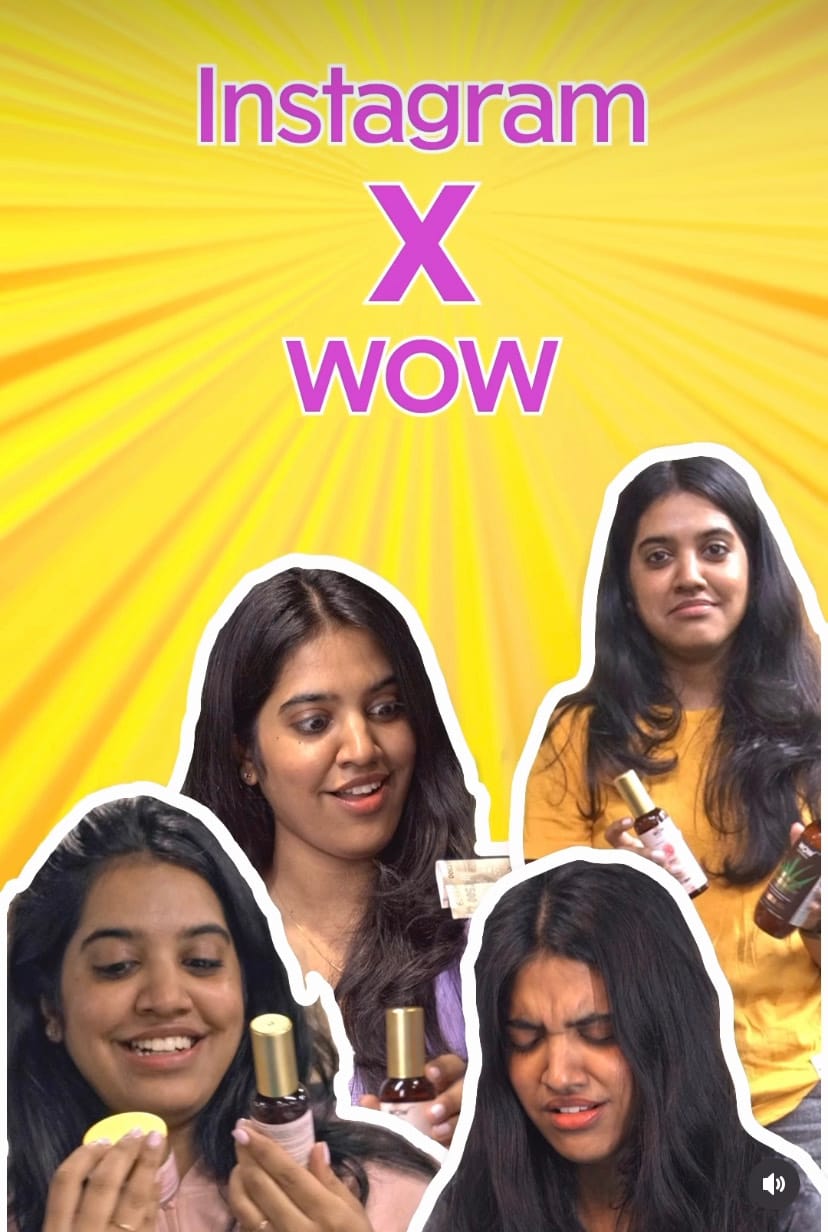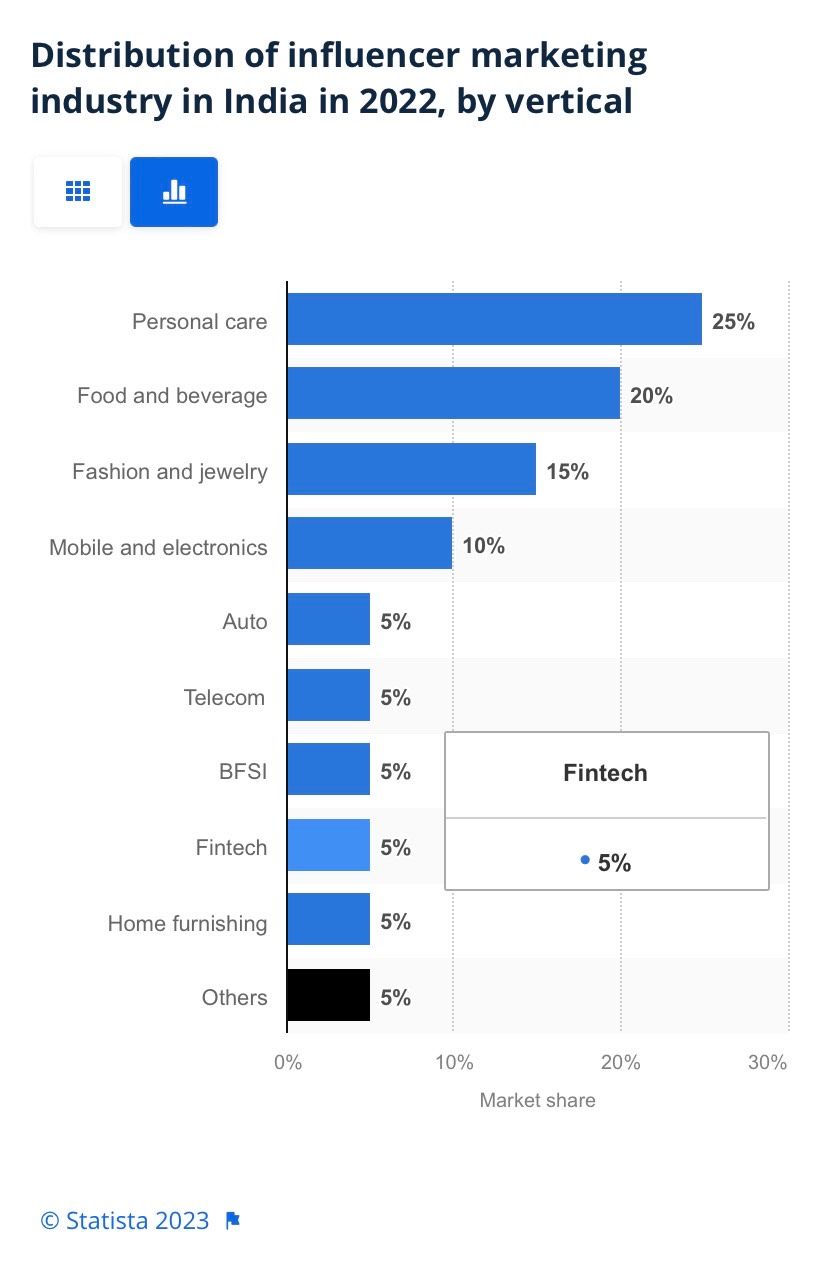Influencer marketing tips you can't miss from WOW Skin Science

In a rapidly evolving digital landscape, influencer marketing has emerged as a cornerstone for brands seeking to thrive in the Direct-to-Consumer (D2C) realm. With the market in India booming, it's crucial for businesses to understand the nuances of this dynamic strategy to stay ahead. Here's how WOW Skin Science, a prominent D2C brand, leverages influencer marketing to its advantage, along with essential tips on how to increase your ROAS (Return on Ad Spend) and navigating the Content to Commerce transition.
So, what exactly is influencer marketing?
It revolves around endorsements and product mentions from influencers — individuals or organisations recognised for their expertise or significant social influence in a specific domain. As a branch of social media marketing, it hinges on these influencers championing a brand's offerings to their vast follower base.
In the modern digital age, the potency of an authentic influencer endorsement can be transformative for brands.
In this exploration, we've partnered with Wow Skin Science, a leading name in the D2C arena. Together, we delve into the transformative role of influencer marketing for their brand and offer insights for businesses looking to tap into this vast potential.
The rise of D2C brands and social media users in India
India has witnessed a remarkable surge in Direct-to-Consumer (D2C) brands. In 2020, the country was home to an impressive 70,000-80,000 D2C companies, expected to climb to 200,000-250,000 by 2025.
By January 2023, India recorded a striking 467 million social media users, constituting roughly 32.8% of its entire population.
This growth in the D2C companies and more people marking their presence on social media channels represents a significant shift in retail norms, with D2C brands harnessing the power of online platforms, primarily social media, to connect directly with consumers and bypass traditional retail channels.
The D2C advantage in influencer marketing

Influencers are distinctly influential game-changers in today's vast digital arena. Their unique blend of authenticity and direct audience engagement aligns perfectly with the ethos of Direct-to-Consumer (D2C) companies.
- The multifaceted nature of influencer marketing allows D2C brands to broaden their reach and effectively engage potential customers. By leveraging influencers' credibility, creativity, and deep audience understanding, these brands can achieve both cost-effectiveness and significant impact.
- Being inherently digital-first and directly connected with consumers, D2C brands benefit immensely from this synergy, enabling authentic storytelling, precise campaigns, and the nurturing of active communities.
“Online commerce doesn't have a mechanism to replicate traditional offline channels' touch, feel, and feedback mechanisms. Influencers provide this critical missing link between online brands and online consumers.”
- Vaibhav Arora, Vice President of E-commerce at WOW Skin Science
In essence, D2C brands' agility and data-driven strategies, combined with their need for differentiation, make them exceptionally well-suited to capitalise on influencer partnerships.
D2C sectors leveraging influencer marketing
The influencer marketing industry has witnessed widespread adoption across sectors, with the personal care vertical leading with a 25% market share in 2022.
Key sectors like food, fashion, jewellery, and mobile/electronics have also embraced influencers to strengthen brand messages and connect with their target audiences.

“Globally, influencer marketing plays a critical role across all consumer categories. We realised early on that India would catch up soon, given the ever-increasing smartphone penetration and inexpensive data/video.”
- Vaibhav Arora, Vice President of E-commerce at WOW Skin Science
The symbiotic relationship between influencers and D2C brands stems from their mutual objective of directly connecting with audiences. As the digital landscape continues to grow, more D2C sectors are likely to tap into the vast potential of influencer marketing.
3 things D2C founders need to remember when hiring an influencer
“The influencer ecosystem in India has evolved over the years. It now requires the same level of analytical attention as the traditional tools for media modelling mix, especially around selecting the right influencer who talks to your target audience (TG), shares your brand values, and ensures that the brand communication lands through the videos.”
- Vaibhav Arora, Vice President of E-commerce at WOW Skin Science
Choosing the right influencer is crucial for a D2C brand as it can determine the effectiveness and authenticity of the campaign.
Here are the top three considerations when choosing:
1. Audience Alignment
- Target Demographic Overlap: Ensure the influencer’s followers match your brand’s target audience in age, interests, geography, and other demographics.
- Engagement Rates: High follower count is less significant if followers don't actively engage with the influencer's content. Genuine comments, shares, and likes indicate a more involved and invested audience.
2. Authenticity and Brand Resonance
- Shared Values: The influencer should have a personal brand or content theme that aligns with your D2C brand’s ethos and values. This makes the partnership seem more organic and genuine to the audience.
For example, Puma, the global sports brand, is propelled to the forefront, making it the leading sports brand in India regarding Puma sales. Their strategic association with prominent personalities from various fields significantly contributes to this achievement.

By collaborating with actors, singers, and sportspersons, Puma has garnered substantial attention and traction, resulting in increased brand loyalty and sales. Puma's latest partnership with Anushka Sharma, chosen for her immense youth appeal and dedication to fitness, aligns seamlessly with the brand's footwear, apparel, and accessories collection.
- Credibility in the Niche: An influencer with a reputation in your product's niche (e.g., a skincare expert for a D2C brand) can add significant credibility to your campaign.
3. Content Quality and Consistency
- Production Standards: The influencer’s content should be high quality, which reflects your brand well when featuring your products.
- Consistency: Review their posting frequency and the regularity of their content themes. An influencer who posts sporadically or changes content themes frequently might not be the best choice for a long-term partnership.
“Here are some tips for brands that want to use influencer marketing effectively in India:
Do research. Before you start reaching out to influencers, take the time to research your target audience and identify the influencers who are most likely to resonate with them.
Be authentic. When working with influencers, it's essential to be authentic. Don't try to force a partnership that isn't a good fit.
Set clear expectations. Before you start working with an influencer, set clear expectations about what you're looking for in content, deliverables, and compensation.
Measure your results. It's essential to track the results of your influencer marketing campaigns so you can see what's working and what's not.”
- Vaibhav Arora, Vice President of E-commerce at WOW Skin Science
How to run a successful influencer marketing campaign?
Step 1 – Identify Your Core Audience
Understand specific audience subgroups to align with relevant influencers, ensuring targeted outreach.
Step 2 – Establish Objectives & Metrics
Set clear goals (e.g., amplify brand recognition, spur sales) and break these down into measurable KPIs, focusing on indicators like interaction rates.
Step 3 – Shortlist Influencers
Compile a list of top health and wellness influencers, initiating conversations and ensuring they're genuinely passionate about your brand.
Step 4 – Draft a Campaign Outline
Detail mutual expectations, including goals, post formats, and essential tags or URLs.
Step 5 – Roll Out & Monitor
Launch the campaign and closely track influencer content, discerning top-performing messages and influencers.
Step 6 – Analyse & Refine
Evaluate campaign outcomes and gather feedback from influencers to refine future strategies and how to increase your ROAS.
Conclusion
As the D2C landscape continues to evolve, influencer marketing remains a cornerstone for brands looking to thrive in the digital realm. By strategically integrating influencer partnerships into their marketing strategies and knowing how to increase your ROAS through targeted campaigns, D2C brands can effectively bridge the communication gap with their target demographics and lead in consumer engagement and loyalty.
By researching on how to increase your ROAS and content to commerce, brands can enhance their online visibility and drive conversions, further solidifying their position in the competitive D2C market.
As the industry continues its upward trajectory, brands that astutely integrate influencer marketing into their strategy will undoubtedly lead in consumer engagement and loyalty.




